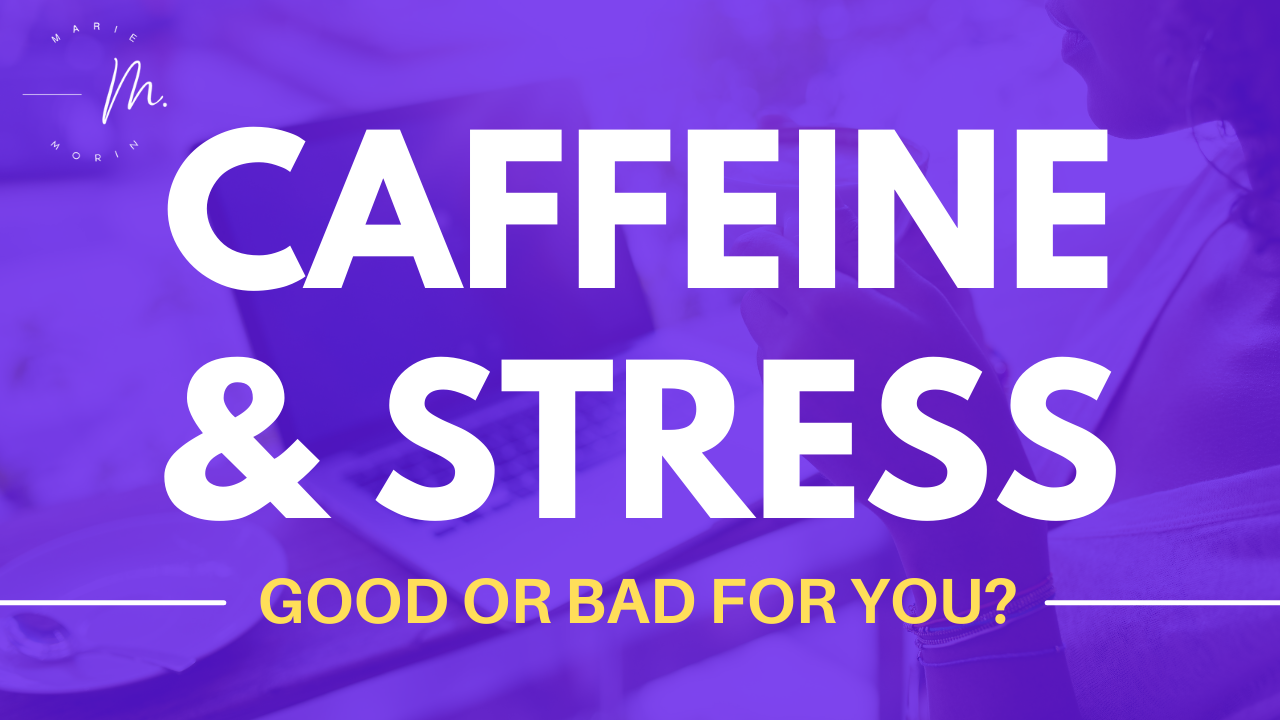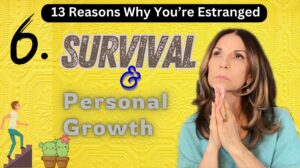The question “is caffeine good or bad for you” is best determined by personal experience: has caffeine use instigated any stress-inducing symptoms such as restlessness, insomnia, nervousness, gastrointestinal disturbance, tachycardia, flushed face, diuresis, rambling thoughts, or periods of inexhaustibility?
According to the Diagnostic and Statistical Manual of Mental Disorders, DSM5, the criteria for caffeine intoxication would include 5 or more of these symptoms. The specific amount of use equals a bit more than one Grande cup or more than 250mg of caffeine.
While many do not experience any of the above stressful signs of use, some admit that quitting has helped them enjoy their day without the threat of simulated anxiousness. This article discusses the important question, “Is caffeine good or bad for you?”
- Caffeine: Enjoyable or Stressful?
- Some Good About Caffeine
- Is Caffeine Bad for You?
- Caffeine and Well-being
- How Does Caffeine Use Effect Stress and Anxiety?
- Breathe the 4-7-8 Pattern to Calm Caffeine Jitters
- Is Caffeine Good for You?
- Coffee Increases Energy, Improves Cognitive Functioning, and Work Out Performance
- Decide if Caffeine is Working for You
Caffeine: Enjoyable or Stressful?
Has caffeine been a beverage that is enjoyable and free of uncomfortable effects? Or, has caffeine use been a thorn in your side, creating havoc in your body? Has decreasing intake reduced stressful symptoms? The physical effects or lack of them, your attachment to a morning ritual or pre-workout use can inform your decision to continue or quit. In this article, we explore both sides of the question with attention to benefits and the potential for anxiety.
Some Good About Caffeine
Coffee, the most common source of caffeine, has some positive effects. Studies suggest that those who indulge in the joe have less likelihood of developing type 2 diabetes, Parkinson’s disease, heart failure, heart attacks, and stroke. Also, research tell us that women who drink coffee are less likely to die of heart disease, stroke, kidney disease as well as diabetes.
Is Caffeine Bad for You?
Within the last 10 years, consumption has skyrocketed to exceed the FDA’s recommendation of 400 mg per day. The inverse relationship of sleep with caffeinated beverages may also be affected by hidden milligrams in some foods. Specifically, caffeine binds to receptors meant for adenosine. Which means that caffeine will block the sleep sensation intended by adenosine. This neurotransmitter and central nervous system depressant is normally present for sleepiness to occur. This explains why coffee will keep you up if consumed within 12 hours bedtime. Even low doses of caffeine can trigger the fight or flight response, with more research needed to directly implicate the exact course of adrenaline. In any case, the agitated reaction likely explains how caffeine is related to feelings of anxiety and increased stress.
Caffeine and Well-being
Understanding the role that caffeine plays in exasperating anxious perception deserve weighing in both the good and bad. Certainly, looking at one’s ability to tolerate and metabolize caffeine, if it presents physical problems, and if consumption is within the daily recommendations is worth considering. Deliberating the pros and cons of caffeine may provide a basis for an important choice for wellbeing. Many hardcore caffeine drinkers have crossed over to the other side and have never felt better.
If caffeine use is a problem, try going slowly, decreasing in increments. Replace higher caffeine beverages with either decaf coffee at 15 mg, 8 oz of green tea containing 30 – 50 mg of caffeine, and black teas at 27 mg of caffeine. Drinking popular energy drinks, that rank between 5- to 300 mg, sparingly is a good idea.
How Does Caffeine Use Effect Stress and Anxiety?
Caffeine is a psychoactive drug that increases heart rate. Anyone who has ever experienced a panic attack will attest to the dreadful sensations. Symptoms of panic include feelings of heart-pounding, perspiration, lightheadedness, and the associated fearful thoughts resulting from making meaning of the uncomfortable sensations. Perceptions of the sensation of a heavy heart pounding in one’s chest can be enough to trigger the onset of a panic attack. At the very least, the natural sensation of the caffeine jitters from having a bit too much coffee can be unsettling as well. Anxiety kicks in when there is concern about the meaning of the sensations and getting caught by surprise that there could be a serious health issue. Obviously, if too much coffee or other caffeinated drink causes nervousness or jittery sensations, there is the potential to be concerned that something more serious is happening. Perceptions in response to physical sensations can set up the discomfort for anxiety.
Breathe the 4-7-8 Pattern to Calm Caffeine Jitters
Taking a moment to consider if you may have had too much caffeine and pausing to accurately assess your sensations matched with your perceptions necessitates mindfulness. In this case, being mindful will require a moment where a 4-7-8 breathing practice to relax. This practice entails inhaling for 4 counts, holding for 7 counts, and then exhaling for 8 counts as a complete cycle. Repeat the cycle 5-10 times or until you can feel the sensation of calm. Breathing techniques to calm are more effective to ward off a panic sensation. Inhaling and extending the exhale, through the nose, will help offload carbon dioxide. Be sure to do nasal breathing since mouth breathing causes intake of more carbon dioxide. Studies have found that individuals tested before the full effects of a panic attack, having higher concentrations of CO2 in their blood as a result of shallow quick breathing.
Is Caffeine Good for You?
Early studies of caffeine use list several positive effects. Recent research findings confirm that coffee is rich in powerful polyphenols or antioxidants. Polyphenols including chlorogenic acids, cinnamic acid, and ferulic acid, and others, fight the effect of free radicals or oxidative stress. Free radicals caused by poor diet and stress are responsible for certain health conditions as well as premature aging. Consuming antioxidant-rich drinks such as coffee, green tea, hot chocolate, can support healthy blood sugar levels and a slightly lower risk of stroke.
Coffee Increases Energy, Improves Cognitive Functioning, and Work Out Performance
Studies suggest that coffee improves alertness both early and later in the day as well as improves thinking ability. Studies also link drinking coffee with better workout performance due to the release of norepinephrine. Also, caffeine increases the level of fatty acid metabolism, accounting for its high preference for runners. Enjoying Caffeinated beverages such as energy drinks or caffeinated protein drinks are common practices.
Caffeine provides a stimulating effect and is known to promote the release of neurotransmitters dopamine and norepinephrine. These “feel good” brain chemicals in turn elicit better moods, memory, energy, and improved cognitive functioning.
Considering that coffee is the most popular caffeinated beverage, studies of coffee find physical health benefits to also include a decreased risk of neurodegenerative disorder, Parkinson’s disease as well as Alzheimer’s disease. Overall health benefits studied include the relationship of caffeine use and lower incidences of illness such as liver cancer, endometrial cancer, prostate cancer, basal cell carcinoma, and cardiovascular disease providing caffeine are moderately consumed.
Decide if Caffeine is Working for You
Is drinking caffeinated drinks harmful? Let’s consider that in time, one’s individual tolerance causes the need for more caffeine to get the same effects. Tolerance occurs with either moderate or consistent use. The more milligrams of caffeine needed to gain the stimulating effect is where the potential for harm occurs. More to the point, cup size is the culprit of sometimes over 600 mg of caffeine per day. Differing from decades ago of the petite 6 oz cups has transformed into an impressive 16 ounces of your favorite Grande cup of joe with 225 mg of caffeine. More than half the FDA’s recommended 400 mg of caffeine per day. This increased need due to tolerance may cause some to drink much more caffeine than realized. Is it any wonder that harmful quantities are the result of increased tolerance, and the quest for the morning jolt to awaken and solving overall morning fatigue.
The worldwide habit of consuming caffeine, most commonly coffee, with the United States leading consumption with approximately 144 billion cups of coffee per year. This ranks the U.S. as the largest consumer of coffee in the world. Coffee represents approximately 75% of caffeine consumption with tea, energy drinks, and soft drinks contributing to the American habit.
With roughly 40 million adults who struggle with anxiety, addressing caffeine intake and how it personally impacts one’s daily stress level is an important health concern. The key to well-being may be the mindful practice of self-assessment of what is working and not working in a daily routine. No doubt, the ritual, the aroma, the taste, and the jolt can be pleasurable, to say the least. Anxiety, stress, and, rapid heart rate, can often be managed by reducing or quitting.
The question remains, is caffeine good or bad for you? The question requires a good look at personal preference and accurate consideration of its usefulness in your day. Do coffee, tea, or energy drinks push the stress factor? If so, decide and then enjoy your choice either way. With a little investigation, there are plenty of non-caffeinated or low caffeine options to start your day. On the contrary, if the choice to continue encourages you to run to the nearest coffee shop, then enjoy away.






